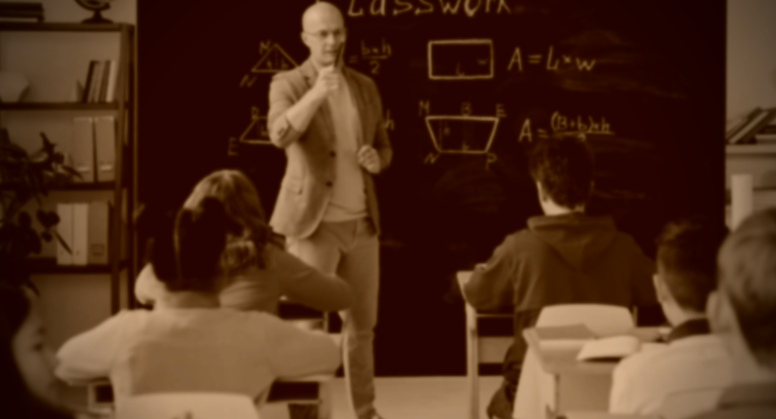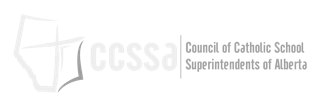The need for faith formation for Catholic teachers is an ever-present reality. Modern Church documents – from the Second Vatican Council’s Gravissimum Educationis to the most recent instruction from the Congregation for Catholic Education, The Identity of the Catholic School for a Culture of Dialogue – point to the need for teachers to be well-formed in doctrine and Christian living. This requisite arises from the fact that, contrary to popular belief, Catholic schools are not for Catholics. Rather, the Church sees education as the foremost spiritual work of mercy, flowing from the Body of Christ, for the whole world. The Church instructs the ignorant as part of her Great Commission. Not just those ignorant of Catholic Christianity; this mercy is to be shown to those unfamiliar with mathematics, for instance, and the natural sciences, as well as those estranged from the humanities and fine arts. In speaking to the beauty, truth, and goodness of creation, the Church cannot avoid making reference to the Creator. Thus, education is primarily evangelical, and Catholic education is ‘Catholic’ because it is for everyone (the term ‘Catholic’ itself being derived from the Greek katholikos, or ‘universal’). In other words, it is not intended to be for Catholics, but rather from Catholics, and Catholic teachers need to be properly formed so that they are able to practice and teach Catholic Christianity.
This is no new concept, certainly, but just what should this formation look like? First, we have to acknowledge that teachers are generally drawn from the ranks of the baptized, few of whom are well-versed in their religion, and most of whom are trained as teachers at university programs that do not provide a sufficient amount of faith formation, if any. Referencing this fact is not intended to question the faith of our teachers, but rather acknowledge that the average Catholic does not know much about why they believe what they believe. We, the Church, quite obviously need to do a better job of adult catechesis in general, but I digress. It is, in part, up to Catholic school divisions to create professional development that aids in forming their teachers. These programs cannot be merely a requirement to attend Mass on Sundays (although that should be a part of them) and participate in parish life. Catholic school divisions need to have ongoing formation programs that address their needs as Catholic educational professionals, and not just Catholic adults.
Since Catholic teachers hold a lay leadership vocation in the Church, let’s take a look at the formation programs put in place for other Catholic leaders; our clergy. Seminary formation programs will often focus on four dimensions of formation: human, spiritual, intellectual, and pastoral. Each dimension focuses on a different aspect of the person to provide a holistic formation that enables effective ministry:
- Human formation celebrates what it means to be human; virtue, psychology, health, wellness, and a joy of life.
- Spiritual formation is that foundational practice of the faith; liturgy, sacraments, prayer, devotions, retreats, and the general practice of Catholicism.
- Intellectual formation focuses on understanding and articulating the beliefs held by the faithful; theology, philosophy, history, and other academic pursuits related to the faith.
- Pastoral formation provides the tools needed to guide those placed in one’s care; listening skills, counseling, behaviour, and learning those skills needed to lead people to God.
The teaching profession itself, as a secular entity, tends to address pastoral and human formation as teachers learn to care for and educate the youth. These simply need to be framed in the Catholic worldview as they continue to be addressed in professional development. With regard to spiritual formation, Catholic schools have an expectation – and provide plenty of opportunity for – practicing the faith with school liturgies, guest speakers, retreats, prayer, devotions, etc. Although all of these dimensions of formation need to continue throughout a teacher’s career, it is the area of intellectual formation that school divisions need to put a particular emphasis on.
An emphasis on intellectual formation is not to say that every teacher needs to have formal education in theology; rather, the emphasis arises from the nature of the teaching vocation. Learning is a knowledge-focused endeavour, and a teacher needs to know more about the subject matter than her students do in any subject she teaches. Further, the more a teacher knows about Catholic Christianity, the more he can permeate the faith into his subjects.
When Catholic educators hear the word 'permeation' we tend to think of the sacramental and often sentimental trappings of our Catholic schools. This list includes crucifixes over doors, cross-shaped windows, advent wreaths, saintly slogans stenciled on walls, rosaries, statuary, or bibles on shelves. We might include prayer and other religious practice on the list, which certainly set our schools apart as Catholic. We then proceed to instruct in a secular curriculum (barring formal religious education classes), with – ironically – nary a mention of our religion.
The whole concept of ‘faith permeation’ is that our faith has a lasting, changing effect on us. This isn’t an infusion, diffusion, or suffusion; such language implies an additive ‘pouring out’ of our faith into, throughout, or onto our schools. Rather, permeation is the idea that the Gospel of Jesus Christ passes into, throughout, or onto our schools and results in palatable change to the school (not just a ‘presence’). Hanging a cross on the wall is a lesser form of permeation compared to, say, building a school in the shape of a cross. Beginning with prayer is not as ‘permeative’ as, say, incorporating the faith into a lesson on geometry; for instance, relating circle geometry and the golden ratio to the number of fish caught in John 21:11.
Intellectual formation enables permeation by providing the teacher with enough knowledge of the faith that they can identify overlap between their subject matter and Church teaching. It’s akin to using a sports analogy to teach physics. A billiard table makes an excellent stage for the play of conservation of momentum, but one needs a familiarity with both billiards and physics to pull it off. If a Catholic teacher is to permeate her subject matter with the faith, she must be familiar with both: (a) the Catholic faith, and (b) her subject matter. For this reason, intellectual formation should be both general (i.e. touching on foundational Christian truths) and subject specific.
After decades of envisioning the faith solely in terms of relationships (to God, Jesus, other people, etc.), shifting the focus of faith formation toward intellectual formation can be met with resistance. Consider, however, that mature relationships require more than mere performative action. We have to actually learn about the people we love; one cannot truly love what one does not know.
Grant Gay is the Director of Catholic Education for Christ the Redeemer Catholic School Division.




